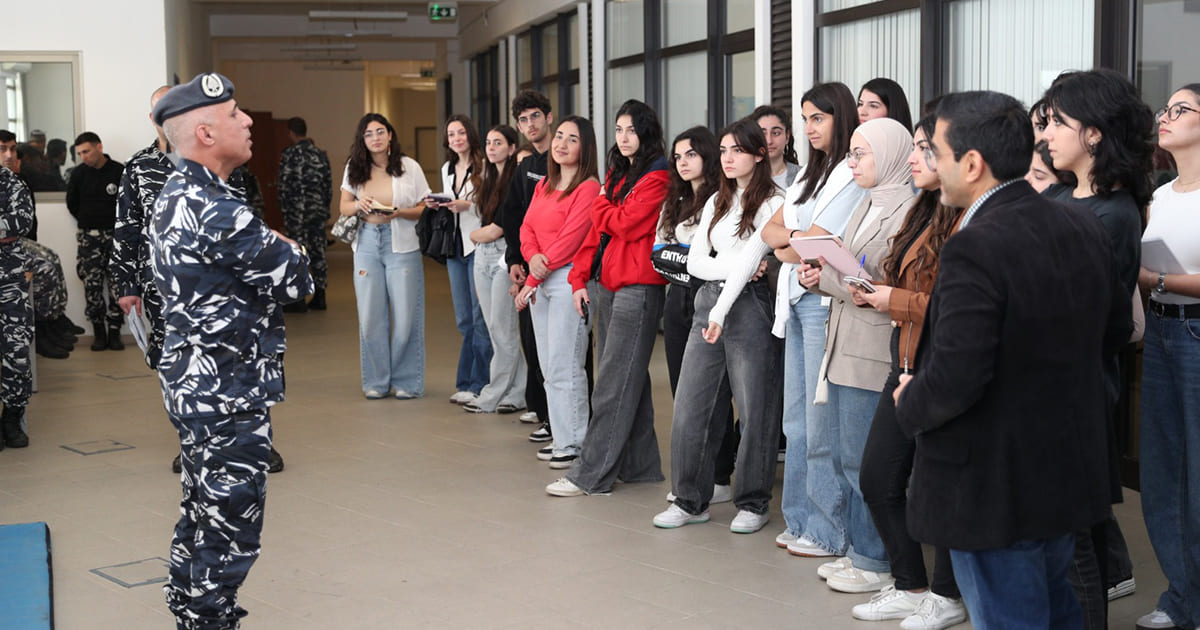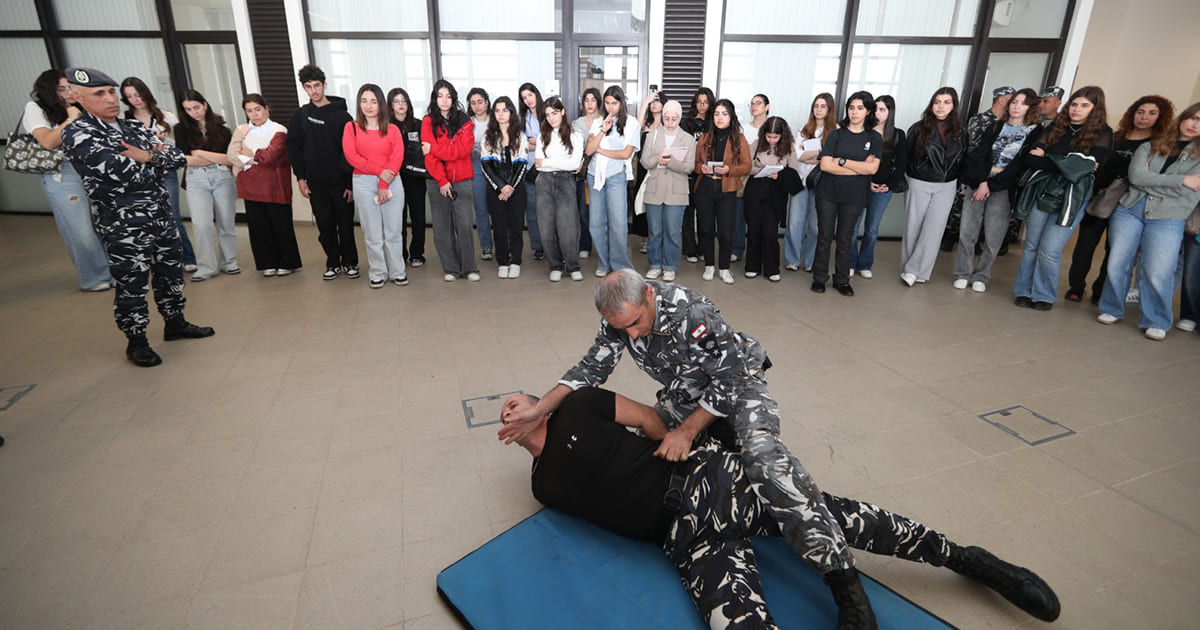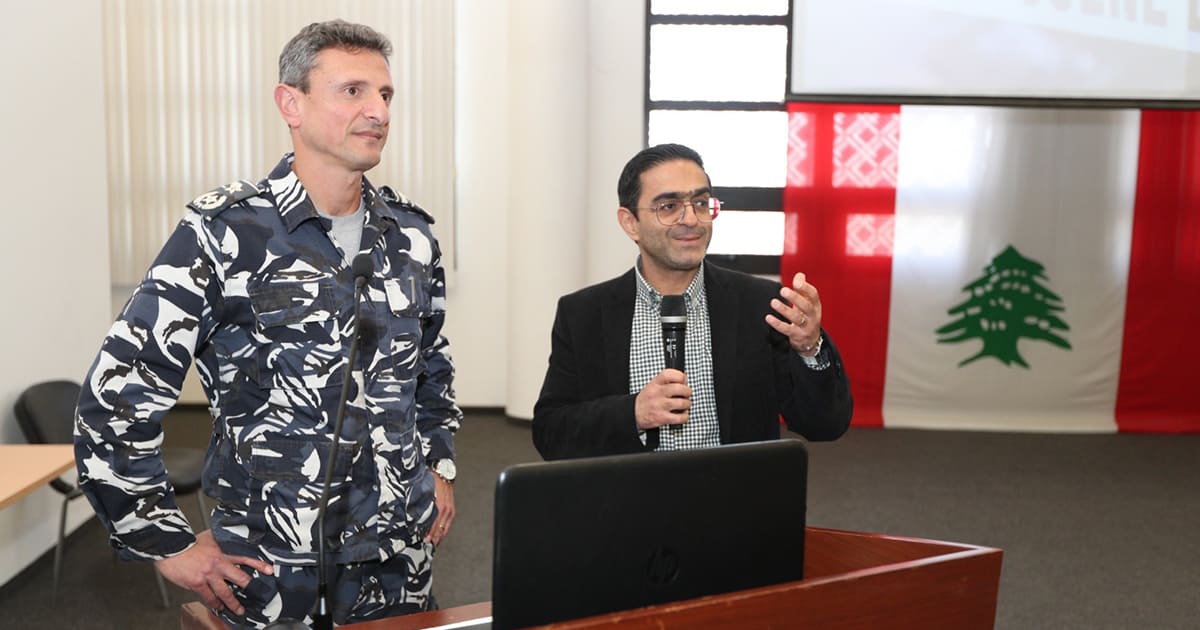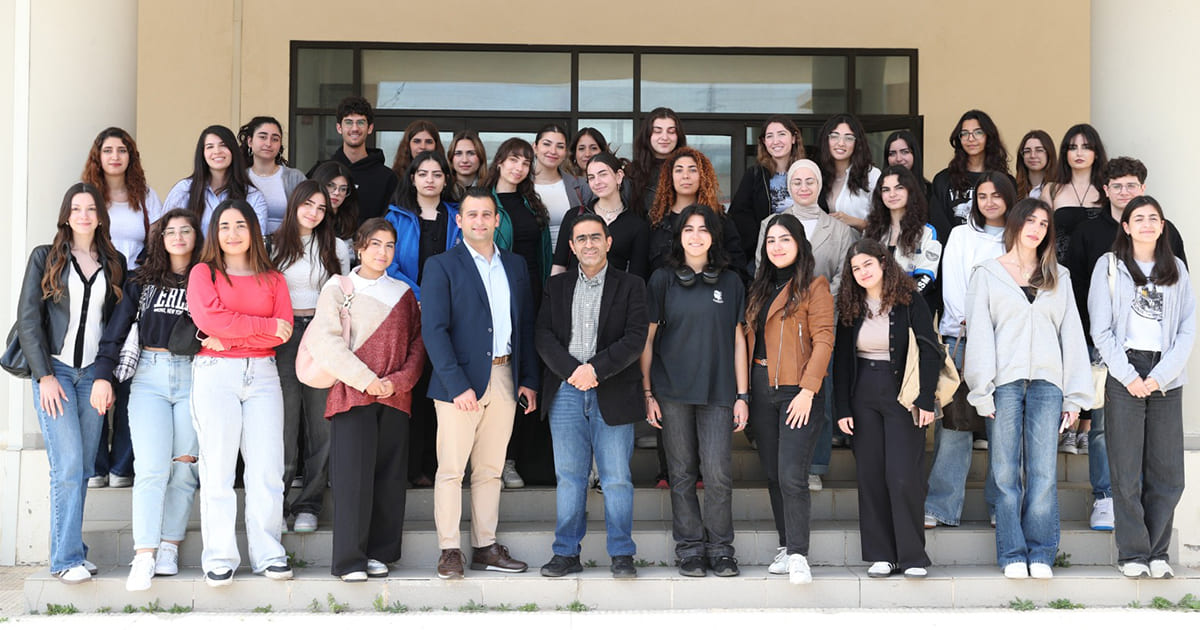Into the Psychology of Justice
LAU’s Psychology program addresses gaps in Lebanon’s legal framework by bridging theory and practice with the help of experts.
Psychology is a diverse field that explores the complexities of human behavior, cognition and emotion, but when this science enters the courtroom, it plays a significantly larger role.
Forensic psychology, specifically, applies psychological principles to legal systems to help them understand criminal motives, evaluate witness credibility, and provide trauma-informed justice.
With this in mind, Assistant Professor of Practice at LAU’s School of Arts and Sciences (SoAS) Toni Sawma, who teaches the Topics course Forensic Psychology under SoAS’ Psychology program, accompanied his students on March 26 to the Internal Security Forces (ISF) Academy in Aramoun for a firsthand exploration of forensic methodologies.
“Lebanon’s system treats psychology as an afterthought—something to briefly consult when determining if a defendant is mentally fit,” said Dr. Sawma. However, he believes that should change.
The course offers students a comprehensive introduction to the applications of psychological theories, research and practices within the criminal justice system. Students gain a more nuanced understanding of the psychological mechanisms that influence criminal behavior and legal decision-making.
“We care about delivering a humanitarian dimension of law enforcement in Lebanon,” said Lieutenant Colonel Rony El Hachem as he welcomed the students. “It is important for students, the future leaders of this country, to consider the role psychology plays in informing decisions from crime prevention to prisoner rehabilitation.”
He added that there is growing emphasis on police-community relations nowadays, where fostering trust, empathy and psychological insight is essential to modern policing.
This falls well under the objectives of the Psychology program, which aims to bridge theoretical knowledge with real-world applications to deepen the students’ appreciation for the diversity of the field.
Topics such as the psychology of false confessions, jury decision-making and expert testimony, for example, sharpen their perspective on how human cognition and behavior influence the judicial process.
In a lecture by ISF Major Rawad Tohme, who was invited by Dr. Sawma last year to give a presentation at LAU on a similar topic, students learned about the inner workings of the ISF by observing simulated crime scenes, investigative procedures and interactive conferences.
Through further sessions with police officers, they gained insight into decision-making while touring command offices, the operations room and intelligence divisions.
Students also got to observe simulations of criminal scenes—where officers demonstrated how they collect evidence, analyze crime patterns, and develop psychological profiles of suspects—and visit the ISF’s mock village, a training ground where officers rehearse interventions in diverse scenarios, from hostage situations to domestic abuse cases.
“Understanding all these factors is critical for our students,” said Dr. Sawma, “as it helps them identify biases, improve their interrogation techniques, and even make sure that legal decisions are based on reliable psychological assessments even before they step into their careers.”
He added that through case studies and discussions, students learn to critically evaluate forensic psychological cases and their implications for justice.
In another session, Dr. Sawma invited Dr. Myriam Amm, an assistant professor of pediatrics at the Holy Spirit University of Kaslik (USEK) and head of pediatrics at Notre Dame des Secours–University Hospital (NDS–UH) specializing in pediatric gynecology, to speak about forensic medicine in child sexual abuse.
The lecture focused on identifying underlying signs of abuse, both physical and behavioral, while debunking common misconceptions about trauma and handling ethical challenges when working with families and authorities.
According to Dr. Sawma, this training addresses a dire need in Lebanon, where child protection systems remain ambiguous and cultural stigma often discourages victims from speaking out.
“My goal behind these guest lectures is to merge psychological principles with clinical forensic medicine so I can help students advocate for vulnerable populations,” he said.
For second-year psychology student Tala Tabet, these activities “allowed us to make all theoretical material more concrete and observe its manifestation in real life.” As a student who wishes to pursue a career in forensic psychology, she was grateful to have been “introduced to ideas I had not been aware of and to further my passion for understanding the law and the protection of citizens.”
Looking ahead, Dr. Sawma feels encouraged by the growing societal acceptance of mental health professionals and their service to society. For this reason, he is determined to incorporate more practical experiences and organize initiatives that reflect community-oriented practices into the curriculum.


